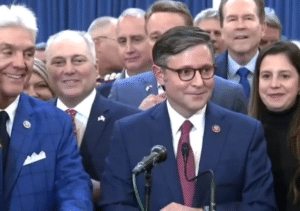Harris Campaign Faces Fact-Check Over Major Media Narrative Misstep
A renewed controversy has erupted around a narrative that was previously debunked by fact-checkers, involving former President Donald Trump and remarks he made amid racial unrest in Charlottesville, Virginia.
The Kamala Harris campaign recently referenced a debunked narrative regarding Trump, sparking renewed scrutiny and corrections from fact-checkers, as the Daily Caller reports.
Origins of the "Very Fine People" Narrative
The controversy centers on Trump's comments during the infamous Charlottesville, Virginia protest incident, which were widely reported as showing sympathy for white supremacists. This interpretation was embraced by various media outlets and political figures, which used it to criticize the Trump administration's stance on race.
Trump stated there were "very fine people on both sides" of the protest, clarifying also that he condemned the neo-Nazis and white supremacists present. This nuance was often omitted in widespread media coverage. It became known as the "very fine people" hoax, a term used to describe the misrepresentation of Trump's words.
Fact-Checking Clears Up Misconceptions
Snopes, a fact-checking organization, addressed the controversy in June 2024. Their report clarified that Trump's remarks were taken out of context in many public discussions and media reports.
The debunking aimed to rectify the narrative by providing a detailed examination of the full context of Trump's comments. Despite this clarification, the narrative had already become a significant aspect of political dialogue. The fact-check was expected to bring closure to the perpetuation of this misrepresented narrative.
Resurgence of the Disputed Claim
In 2024, the Kamala Harris campaign brought this narrative back into the spotlight. A tweet from the campaign referred to the long-debunked story, reigniting debates and corrections across social platforms.
Users on social media quickly began to challenge the Harris campaign's reference, citing the recent fact-check by Snopes. This response highlighted the ongoing impact of the original misrepresentation on current political discussions. This situation illustrates how political narratives, once established, can persist and be reused, even after being fact-checked and corrected.
Public and Political Reaction
Reactions to the Harris campaign's tweet varied, with some supporting the continued scrutiny of Trump's presidency, while others criticized the campaign for not adhering to the corrected historical record. Quotes from social media showed a divide in public opinion, reflecting broader national debates over media accuracy and political accountability.
One prominent quote stated, "It’s the media lie that just won’t die: the 'very fine people' hoax in Charlottesville seven long years ago," highlighting the perceived durability of this narrative.
Impact of Media Narratives on Political Perceptions
Both sides of the political spectrum have used the Charlottesville comments to support their views on Trump's presidency. The Democrats have leveraged the initial misinterpretation to label the Trump administration as racially insensitive. Conversely, Trump supporters argue that the narrative was an attempt to unjustly malign Trump's real intentions, emphasizing his actual condemnation of hate groups present at the incident.
The enduring nature of such narratives demonstrates their power in shaping political identities and party strategies.
Conclusion
In conclusion, the "very fine people" narrative from Charlottesville has shown the significant impact of media on political reputations and the challenges of correcting public misconceptions.
Despite a thorough debunking by Snopes in June 2024, the Kamala Harris campaign's recent reference to the narrative has proven that such stories have a lingering presence in political discourse.
This incident underscores the ongoing challenges in political communication and the crucial role of fact-checking in maintaining a well-informed electorate.




